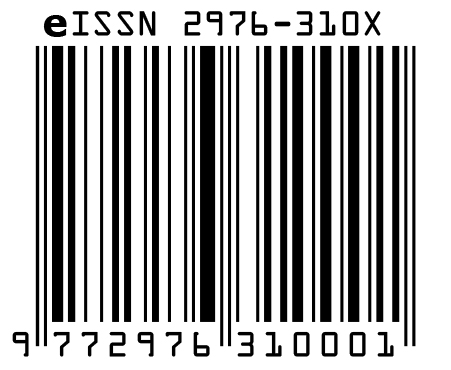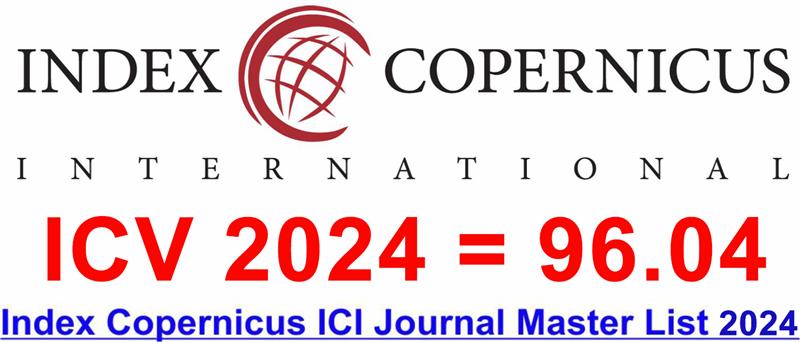Mathematics Through a Linguistic Lens: The impact of English Language Proficiency in Solving Mathematical Word Problems Among Secondary ESL Students
DOI:
https://doi.org/10.60072/ijeissah.2024.v2i02.005Abstract
Background: This study delves into the intricate relationship between English language proficiency and the aptitude for solving Mathematical word problems among secondary ESL students in Qatar. Recognizing the nuanced nature of mathematical word problems, the research underscores the impediments posed by language barriers, impacting students' comprehension and communication in the realm of Mathematics. Methods: To investigate this relationship, two primary data collection instruments were employed: the "English Language Proficiency Test" assessed overall language proficiency, including listening, speaking, reading, and writing skills, while the "Math Word Problem-Solving Ability Test" measured students' competence in comprehending and solving Mathematical word problems. Data analysis, conducted through Pearson’s correlation coefficient and linear regression analysis in SPSS, incorporated descriptive statistics to provide a comprehensive overview of data distribution. Results: The results revealed a robust positive correlation between English language proficiency and Math word problem-solving ability. Descriptive statistics offered insights into data distribution, and linear regression analysis illustrated the predictive relationship, demonstrating how changes in English proficiency predict corresponding shifts in Math problem-solving scores. Conclusion: The findings underscore the critical importance of addressing language-related challenges in Mathematics education for ESL students. Recommendations include explicit vocabulary instruction, effective modelling, the use of visual aids, fostering collaborative discussions, and adjustments to language complexity in mathematical problems. By deepening our understanding of the interplay between English language proficiency and Math problem-solving, educators can tailor instructional strategies to enhance the overall educational experience for ESL secondary students in Qatar, fostering improved comprehension and success in Math word problem-solving ability.
Keywords:
English Language Proficiency, Math Word Problems, ESL (English as a Second Language), Secondary Students, Math Word Problem-Solving Abilities (MWPS)References
Abdulrahim, N. A., & Orosco, M. J. (2020). Culturally responsive mathematics teaching: A research synthesis. The urban review, 52(1), 1-25. 10.1007/s11256-019-00509-2.
Arthur, C., Badertscher, E., Goldenberg, P., Moeller, B., McLeod, M., Nikula, J., & Reed, K. (2017). Strategies to Improve All Students' Mathematics Learning and Achievement. Education Development Center, Inc.
Cummins, J. (2008). BICS and CALP: Empirical and theoretical status of the distinction. Encyclopedia of language and education, 2(2), 71-83.
Fatmanissa, N., & Novianti, M. N. (2022, January). Linguistic Challenges in Solving Mathematics Word Problems: A Case of EFL University Students. In Eighth Southeast Asia Design Research (SEA-DR) & the Second Science, Technology, Education, Arts, Culture, and Humanity (STEACH) International Conference (SEADR-STEACH 2021) (pp. 16-23). Atlantis Press. https://doi.org/10.2991/assehr.k.211229.003
Hamdan, J. M., & Amayreh, M. M. (2007). Consonant profile of Arabic-Speaking School-Age Children in Jordan. Folia Phoniatrica et Logopaedica, 59(2), 55-64. https://doi.org/10.1159/000098338
Lei, Q. (2021). The effect of scaffolded model-based instruction on word problem-solving performance of English learners with learning difficulties in mathematics (Doctoral dissertation, Purdue University).
Liton, H. A. (2016). Harnessing the Barriers That Impact on Students' English Language Learning (ELL). International Journal of Instruction, 9(2), 91-106. https://dog.org/10.12973/iji.2016.927a
Moleko, M. M., & Mosimege, M. D. (2020). Teachers' and learners' experiences for guiding effective teaching and learning of mathematics word problems. Issues in Educational Research, 30(4), 1375-1394.
Nguyen, K., Stanley, N., Stanley, L., & Wang, Y. (2015). Resilience in language learners and the relationship to storytelling. Cogent Education, 2(1), 991160. DOI: 10.1080/2331186X.2014.991160
Lager, C. (2004). Unlocking the language of mathematics to ensure our English learners acquire algebra.
Pearce, D. L., Bruun, F., Skinner, K., & Lopez-Mohler, C. (2013). What teachers say about student difficulties solving mathematical word problems in grades 2-5. International Electronic Journal of Mathematics Education, 8(1), 3-19. https://doi.org/10.29333/iejme/271
Pongsakdi, N., Kajamies, A., Veermans, K., Lertola, K., Vauras, M., & Lehtinen, E. (2020). What makes mathematical word problem solving challenging? Exploring the roles of word problem characteristics, text comprehension, and arithmetic skills. ZDM, 52, 33-44.
Powell, S. R., Urrutia, V. Y., Berry, K. A., & Barnes, M. A. (2022). The word-problem solving and explanations of students experiencing mathematics difficulty: A comparison based on dual-language status. Learning Disability Quarterly, 45(1), 6-18. https://doi.org/10.1177/0731948720922198
Pungut, M. H. A., & Shahrill, M. (2014). Students’ English language abilities in solving mathematics word problems. Mathematics Education Trends and Research, 2014(1), 1-11. https://doi.org/10.5899/2014/metr-00048
Salemeh, Z., & Etchells, M. J. (2016). A case study: Sources of difficulties in solving word problems in an international private school. Electronic International Journal of Education, Arts, and Science (EIJEAS), 2.
Sepeng, P., & Sigola, S. (2013). Making sense of errors made by learners in mathematical word problem solving. Mediterranean Journal of Social Sciences, 4(13), 325-333. https://pdfs.semanticscholar.org/b5bd/dc2c2e91edc6eeba0d742da5de86ad88a58c.pdf
Swanson, H. L., Lussier, C. M., & Orosco, M. J. (2015). Cognitive strategies, working memory, and growth in word problem solving in children with math difficulties. Journal of learning disabilities, 48(4), 339-358. https://doi.org/10.1177/0022219413498771
Vygotsky, L. S., & Cole, M. (1978). Mind in society: Development of higher psychological processes. Harvard university press.
Williams, J., & Lockley, J. (2012). Using CoRes to Develop the Pedagogical Content Knowledge (PCK) of Early Career Science and Technology Teachers. Journal of Technology Education, 24(1), 34-53.
Zerafa, E. (2016). Language influence on solving arithmetic word problems. https://www.um.edu.mt/library/oar/handle/123456789/20793
























